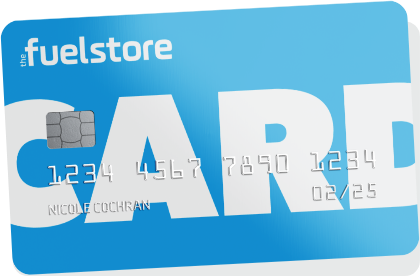Warnings of fuel price rises have hit the news this week, with drivers being told to brace themselves for higher motoring costs. With the price of petrol and diesel rising, The Fuel Store team explores the reasons behind the increase, and what can be done to manage fleet fuel costs.
The impact of rising fuel costs
With geopolitical and economic tensions exacerbating price uncertainty into 2025 (more on this below), it can be hard for businesses and fleet operators to manage cash flow. Business vehicles, and the cost of running a fleet, represent a significant cost for many UK companies. As fuel costs climb, so do business operating expenses. Companies heavily reliant on transportation—such as delivery services, manufacturers, and import/export businesses—face difficult decisions about whether to absorb these costs or pass them on to their customers.
Higher fuel prices also affect consumer purchasing power, potentially leading to reduced demand and negatively influencing the broader economy. Beyond the direct impact of increased transportation costs and diminished consumer spending, rising fuel prices can disrupt supply chains, often passing additional expenses onto small businesses. With fuel prices fluctuating daily, forecasting expenses and managing cash flow becomes increasingly difficult. For small businesses, accurate cost projections are critical for maintaining long-term profitability.
 Look for incremental savings
Look for incremental savings
While not a magic bullet,
corporate fuel cards can help shave a significant chunk off fuel costs - as well as saving valuable time on expense management. In 2023, the average saving for our fuel card holders sat at around 12.5 pence per litre.
AdBlue users also stand to benefit from savings on bulk purchases.
 Monitor and manage cash flow
Monitor and manage cash flow
While not a direct reduction in the cost of fuel, fuel cards can help when it comes to managing business cash flow. Weekly invoicing for fuel allows fleet managers to keep tabs on fuel spending, and budget for fuel costs, helping to manage cash flow more effectively. For customers such as
Tomsetts Distribution, who had always bought full bunker loads of 36,000 litres of diesel every month, moving to fuel cards made a huge difference to cash flow. Pre-pay or fixed pricing options can help further.
 Increase efficiency with data-driven fleet management
Increase efficiency with data-driven fleet management
With driver shortages impacting efficiency, and costs escalating, taking a deep dive into fleet data can help fleet managers to identify actionable insights that directly impact the company’s bottom line. All of our fuel card customers get access to an
online portal that provides data such as fuel spend and usage, transactions, card and budget management tools.
Those looking for deeper business insight can opt to add software called
Fuel AI - a handy tool that can combine and analyse a host of data, helping fleet managers to quickly identify trends. Having access to this data can support data-driven decision-making, which, when used to its full potential, can save as much as 9% off fuel costs.
 Avoid costly fines - stay compliant
Avoid costly fines - stay compliant
With DVSA officers tasked with spot-checking vehicles, those who don’t comply will be subject to fines, and can be taken off the road - both of which can cost firms dearly.
Driver Toolkit digitises the vehicle checking process, helping to reduce the costly fines associated with non-compliance. Managers simply send drivers a QR code, drivers complete the checks on the digital platform, and submit the result. As well as ensuring safety and compliance, fleet managers have a record of results, and data can be easily retrieved in the event of a DVSA roadside check.
 Avoid the risk of card fraud
Avoid the risk of card fraud
During July-September 2023, the DVLA received over 39,000 requests for information on drivers thought to be guilty of fuel theft - 77% more than 2022. Cases of fuel theft have been numerous in recent years, from a bin lorry driver who stole £42,000 of fuel, to a delivery driver who stole more than £56,000. While some cases involve huge amounts of money, others can be as simple as drivers using cards to top up personal vehicles - but the amount soon adds up. Investing in
protection against card fraud is an important step to protecting your business against unexpected costs.

 Look for incremental savings
Look for incremental savings
